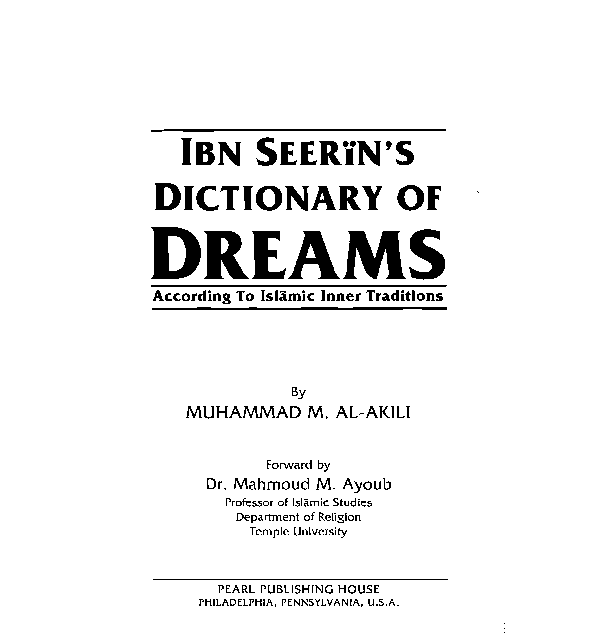Have you ever had one of those dreams that makes you laugh out loud when you wake up? Like dreaming you’re naked in a company meeting, or falling off a skyscraper but never hitting the ground? I used to think these dreams were just my brain “zoning out,” randomly piecing together images.That was until I stumbled upon online discussions about “Islamic dream interpretation.” People claimed it wasn’t superstition, but a logical, systematic method for interpreting dreams that had been passed down for centuries. Skeptical yet curious, I decided to try it myself.
The result? This experiment completely transformed how I view dreams.
Step One: Searching for “Free PDF”? Nearly Drove Me to Tears with Junk Websites
My first instinct was to open a search engine and type in: “Islamic dream interpretation free PDF.”
The result… a complete disaster.

The top links were all those garishly colored sites with pop-ups everywhere. Click one “download” button, and ten ads would jump out at you. Some demanded you register with your email. Others opened to PDFs with text upside down or blurry like looking through frosted glass.Others offered either overly simplistic content (“Dreaming of water = good fortune”) or overly mystical interpretations (“Dreaming of a horse = the soul’s mount”), completely useless.
I spent the entire night downloading five or six files, only to find two usable ones. Honestly, it was exhausting—sometimes free stuff is harder to deal with than paid content.
Step Two: Pick the Usable PDFs and Start the “Brute-Force” Recording Method
I selected the two most reliable-looking PDFs: Common Dream Symbols Decoded and An Introduction to Islamic Dream Interpretation. They weren’t fancy, professionally designed books but more like notes compiled by a teacher or student—simple language, concrete examples, perfect for a beginner like me.
Then I did the most crucial thing—started writing a “dream journal.”
Every morning upon waking, no matter how sleepy, I’d skip my phone and grab the notebook by my bed to quickly jot down three things:
- The most vivid image or object from the dream (e.g., a black cat, a leaky room, a stranger in red)
- My emotional state at the time (Fear? Relaxation? Awkwardness? Excitement?)
- A recent event in my waking life (e.g., just had an argument, just submitted a report, just received money)
This habit later became the key to understanding my dreams.
Step Three: Don’t Just Look Up “Bees”—Learn to “Associate + Combine”
At first, I used the PDF like a dictionary—dreamed of bees? Flip to the “Insects” chapter, where “bees = diligence, harvest, sometimes representing social pressure.”
…Huh? Seems right, yet somehow off.
Later I realized dream symbols are never isolated. The PDF actually mentioned this, but I missed it.
For example, if I dreamt “bees flying in the kitchen, I tried to shoo them away with a broom, but they just hovered motionless over the honey jar”—then I couldn’t just look at “bees.” I also had to consider “kitchen,” “broom,” and “honey jar.”
I started learning to look up several keywords together:
- ‘Kitchen’ → Represents home, daily life, and emotions as a “place of cooking”
- “Broom” → Symbolizes cleaning, chasing away, or wanting to escape something
- “Honey” → Represents sweetness, temptation, or possibly the ‘sticky’ responsibility that binds you
Combined, this dream might suggest: “Lately, you’ve been trying to shake off some ‘sweet burden’ in your life (like family overprotectiveness or friends constantly asking for favors), yet you’re reluctant to cut ties completely.”
—Isn’t this exactly what happened last week when my mom kept nagging me to go on blind dates? I was annoyed but too scared to refuse outright.
The PDF isn’t a book of answers—it’s a “clue manual.” You have to piece the clues together yourself.
Step 4: Free resources not enough? Switch keywords to dig deeper
After using the basic PDF for a while, I kept getting stuck on “too vague.”
For example, the PDF says “water = knowledge or blessing.” But what if I dream of “a burst pipe flooding my house”—is that a blessing or a disaster?
Dreaming of “searching for water in the desert”—is it a thirst for knowledge or just physical thirst?
I realized: Free introductory materials only get you started. To truly understand, you need “professional-level” content.
So I changed my search keywords:
- “Traditional Islamic dream meanings PDF”
- “Classical dream interpretation texts with annotations”
- “Islamic scholars’ dream interpretations with original text translations”
Sure enough, the results were far more substantial—some compiled by university researchers, others translations of ancient Islamic scholars’ manuscripts like Ibn Sirin’s dream interpretation collection. The language was more nuanced, examples richer, and they taught how to integrate the dreamer’s life context, faith state, and recent actions for comprehensive analysis.
For instance:
- Dreaming of “eating food” → If eating clean food + feeling happy = A good omen, representing spiritual or material nourishment;
If eating rotten food + feeling disgusted = A warning, possibly indicating you’re ‘digesting’ harmful people or situations.
Now that’s what I call “depth.”
Step Five: My Biggest Takeaway—Dreams Aren’t Codes, They’re a Blend of “Emotions + Life”
After months of trial and error, I finally grasped one crucial truth:
Even the best PDFs aren’t “dream instruction manuals.” They won’t tell you “Dreaming of A = Event B will happen,” but help you understand “Why you’re having this dream at this moment.”
Here are a few key insights:
1. Your emotions matter more than symbols
Dreaming of snakes: Some fear them, others find them cool.PDFs say “snake = enemy,” but if you coexist peacefully with the snake in your dream, it might represent “taming your inner fears” rather than someone actually trying to harm you.
2. Your real life is the “code book” for interpreting dreams
Dreaming of failing an exam? If you haven’t had an exam recently but are preparing for an important presentation—this dream is saying: “You’re afraid of messing up.”
Dreaming of getting lost? If you’ve just changed jobs, moved to a new place, or ended a relationship—it’s reminding you: “You haven’t found your new direction yet.”
3. Not every dream carries “deep meaning”
Islamic scholars themselves say: Some dreams are just your “brain clearing its cache.” For example, dreaming your car turns into a hamburger—might just mean you ate McDonald’s before bed.Don’t force interpretations—give yourself a break.
Here’s my current “dream interpretation routine”:
- Write down your dream first thing in the morning (even if you only remember one image)
- Open the PDF and look up keywords (don’t just search one—look up related groups)
- Ask yourself two questions:
- How did I feel in the dream? (Anxious? Relaxed? Embarrassed?)
- What’s been my biggest worry/happiest moment in real life lately?
- Match the PDF’s interpretation with my life—if it fits, note it down; if not, set it aside without forcing it.
One last thing: This isn’t mysticism—it’s a “self-observation class.”
What resonates most about Islamic dream interpretation isn’t its “accuracy,” but how it teaches you to use dreams as a mirror—reflecting overlooked emotions, unresolved stress, and hidden desires.
It relies neither on astrology nor tarot, but on centuries-old observation methods to help you converse with your inner self.
The PDF is merely a tool—the true “dream expert” is you.
You don’t need to become a scholar or memorize every symbol. All you need is—
the willingness to listen to your dreams and honestly confront your life.
Dreams aren’t here to scare you—they’re here to help you understand yourself better.
And you—you’re already ready to begin this conversation.
